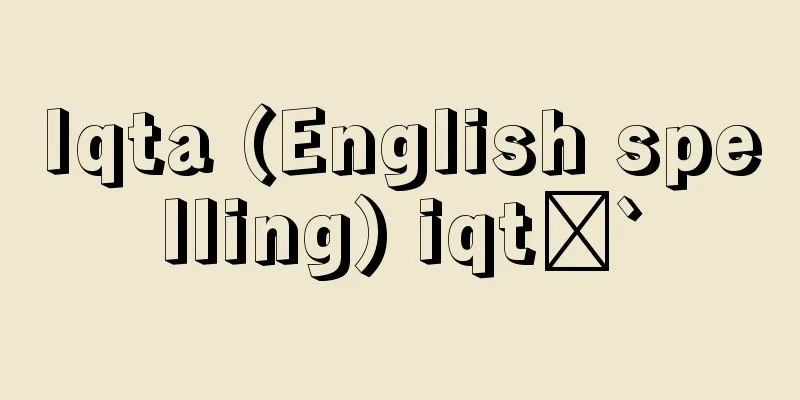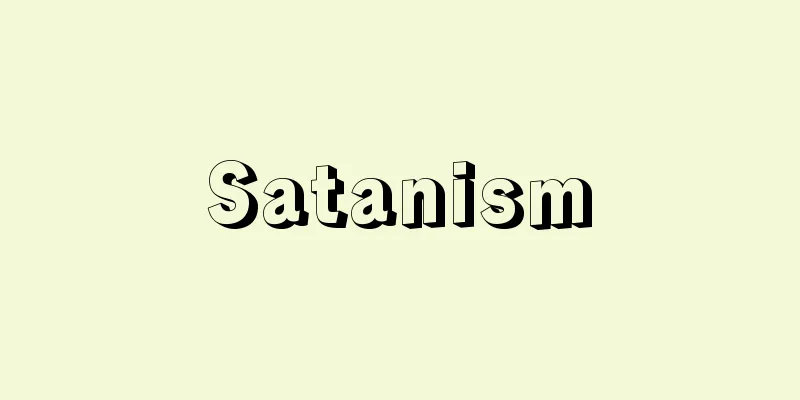Iqta (English spelling) iqtā`

|
An Arabic word meaning the right to collect taxes, or land or village, granted by a caliph or sultan. According to the view of Islamic legal theorists, 'iqta' is divided into private land granted by the state to an individual (iqtā` al-tamlīk) and tax revenue granted in lieu of a salary (iqtā` al-istīghlāl). In the early Islamic period, it was often called qatī`a, and this was one of the foundations of large land ownership in the Arab world. In the second half of the 10th century, Mu'izz al-Dawla (reigned 932-967) of the Buyid dynasty transferred the right to collect taxes from state land to his Dairamite mercenaries in lieu of a salary. From then on, this military 'iqta' system gradually spread throughout West Asian society and became a fundamental element that determined the entire state system, including the military system and land system. Nizam-ul-Mulk, the vizier of the Seljuk Empire, systematized the military service obligations of the muqta`, iqta owners, according to the size of their iqta holdings, and this was inherited by the Zengids of Syria, and then by the Ayyubids and Mamluks of Egypt. The Persian soyurgar system and the Turkish Dirlik (Timar) system are essentially the same system as the iqta system. It was not until the 19th century that a policy of abolishing the iqta system was adopted, after Muhammad Ali's modernization policy in Egypt and after the Tanzimat period in Turkey. In modern Arab society, the iqta system is used almost interchangeably with "feudalism." Source: Encyclopaedia Britannica Concise Encyclopedia About Encyclopaedia Britannica Concise Encyclopedia Information |
|
カリフやスルタンから分与された徴税権,ないしは土地や村落を意味するアラビア語。イスラム法理論家の見解によれば,イクターは国家から個人に対して授与された私有地 iqtā`al-tamlīkと,俸給の代りに授与された税収入 iqtā` al-istīghlālとに分類される。初期イスラム時代にはカティーア qatī`aと呼ばれることが多く,これがアラブによる大土地所有形式の1つの基礎になっていた。 10世紀後半になるとブワイフ朝のムイッズ・アッダウラ (在位 932~967) はダイラム人傭兵に対し,俸給の代りとして国有地からの徴税権を譲渡した。これ以降,西アジア社会にこの軍事イクター制が次第に広まってゆき,軍事制度や土地制度をはじめとして国家制度全体を規定する基本的な要素となった。セルジューク朝の宰相ニザームル・ムルクはイクター所有の規模に応じてイクター所有者 muqta`の軍事奉仕の義務を体系化し,これがシリアのザンギー朝,さらにはエジプトのアイユーブ朝,マムルーク朝へと継承されていった。ペルシアのソユールガール制やトルコのディルリク制 (ティマール制) も本質的にはこのイクター制と同一の制度である。イクター制の廃止政策がとられたのは,19世紀になってからであり,エジプトではムハンマド・アリーの近代化政策以後,トルコではタンジマート以降のことであった。現代のアラブ社会ではイクター制は「封建制」とほぼ同じ意味で用いられている。
出典 ブリタニカ国際大百科事典 小項目事典ブリタニカ国際大百科事典 小項目事典について 情報 |
<<: Ikuta River Legend - Ikuta River Legend
Recommend
"Monkey and Crane" - Enkakuzu
...The Hojo (1636, National Treasure) located dia...
Treaty of Antalcidas
The Treaty of the Great King was a treaty signed i...
Movable fangs - Movable fangs
… Grooved fangs are inefficient because some veno...
Battle of Okinawa - Okinawasen
A ground battle between the Japanese and American...
Roller skate
The name "roller" comes from the fact t...
Pale red millipede - Pale red millipede
…They do not curl up when startled like other mil...
Ankaku Palace Ruins
...After that, Pyongyang, the capital of the late...
Earth spider - Earth spider
Title of a Noh or Kabuki dance piece. (1) Noh Depe...
asphodel
...A perennial plant of the lily family, grown in...
Wesley, C.
...This is partly because, with the modernization...
Deviation - When
〘noun〙① To mistakenly leave out something that is ...
Discriminant - discriminant
N-dimensional equation f(x)=a 0 x n +a 1 x n-1 +…...
Internal waves
Internal waves occur at discontinuities in seawat...
One-part format
...that is, the same musical idea is repeated thr...
Inscription - Meimon
〘Noun〙① = meibun (inscription) ※Chion-in Honjogu, ...









